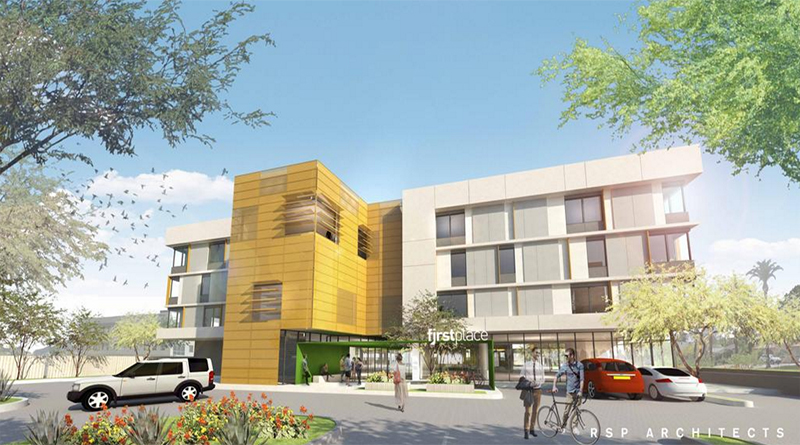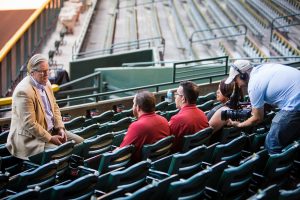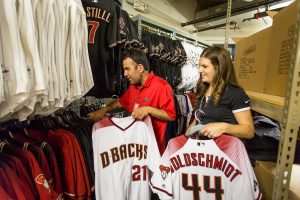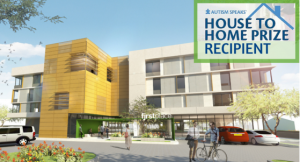
Education, Jobs, Friends a Reality for Adults with Autism
By Denise Resnik
Just a few decades ago, no one thought that running a four-minute mile was possible; that the three-point shot would become an NBA standard; that the un-returnable serve would be so commonplace in tennis; that 50-yard-plus NFL field goals would become 50 percent more achievable; or that the presumptive Democratic candidate for President of the United States would be a woman!
Back then, few also thought that individuals with autism or other disabilities could attend college, find employment or live in a home of their own. Little was known about autism and institutionalization was the norm. It’s what we, as parents, did not want to hear, accept or get out of bed for every day. We needed hope—and that’s precisely what our great community has been making possible.
Today, when families hear “autism” or other disabling conditions for their children, they can also imagine futures that include lifelong education, jobs, homes, friends and a supportive community—a much different future worth working, saving and living for, thanks to the work of the Phoenix-based Southwest Autism Research & Resource Center (SARRC) and its sister nonprofit, First Place AZ.
First Place AZ is building a new, mixed-use residential prototype located in the heart of Phoenix. This urban- and transit-oriented, supportive housing model gives adults 18 and older with autism and other special needs an added dimension to their lives: a hopeful future, one they not only read about, but experience firsthand.

Behind the scenes for the PBS NewsHour segments (credit: Steve Dreiseszun, Viewpoint Photographers)
Children with autism in the U.S. are transitioning to adulthood at unprecedented rates—500,000 this decade alone—representing the most underserved of all those with disabilities. When the right supports are in place, many can be active, productive, contributing community members.
Thanks to national journalists and New York Times best-selling authors Caren Zucker and John Donvan, two PBS NewsHour segments will soon feature SARRC, First Place AZ, SMILE Biscotti and our supportive community, which is opening more doors and providing options for individuals with autism and other “special abilities.”
Students in the First Place Transition Academy beta site were filmed, illustrating how adults with autism of all ages are living, learning and experiencing personal growth, independence, employment, community connections and the confidence that comes with success.

First Place Transition Academy students (credit: Steve Dreiseszun, Viewpoint Photographers)
Later this year, we will break ground on First Place–Phoenix, our prototype and the first in a planned collection of properties, that includes the First Place Apartments for residents with autism and other special needs and abilities, the First Place Transition Academy for students and the National Leadership Institute, which is advancing training, education, research and public policy, supporting more people and communities to develop similar opportunities.
Together with local and national leaders, we are demonstrating what’s possible when we work together, solve problems, pioneer new practices, focus on a common goal and raise the bar on what’s possible. Importantly, we are also demonstrating how friendships form through shared interests and our collective grit, tenacity and spirit of collaboration.
 The momentum is building. Already, First Place AZ, SARRC and our supportive community are being recognized for extraordinary work including being one of three recipients for the international HeroX Autism Speaks House to Home Prize.
The momentum is building. Already, First Place AZ, SARRC and our supportive community are being recognized for extraordinary work including being one of three recipients for the international HeroX Autism Speaks House to Home Prize.
Home Matters, the national nonprofit supported by the MacArthur Foundation, The Kresge Foundation, AARP and other major financial institutions, kicked off its new blog with this post.
In Greater Phoenix, we’re demonstrating how people with different abilities are dreaming bigger—and the smiles that happen when supportive fans and friends cheer them on!
Denise D. Resnik is the founder, president, and CEO of First Place® AZ, a charitable nonprofit real estate and community developer focused on individuals with autism and other neurodiverse populations. She was inspired to start First Place for her son, Matt, who was diagnosed with autism at age 2. In 1997, she co-founded the nonprofit Southwest Autism Research & Resource Center (SARRC). She is also the founder and CEO of DRA Collective, a Phoenix-based public relations, marketing, and communications firm.




